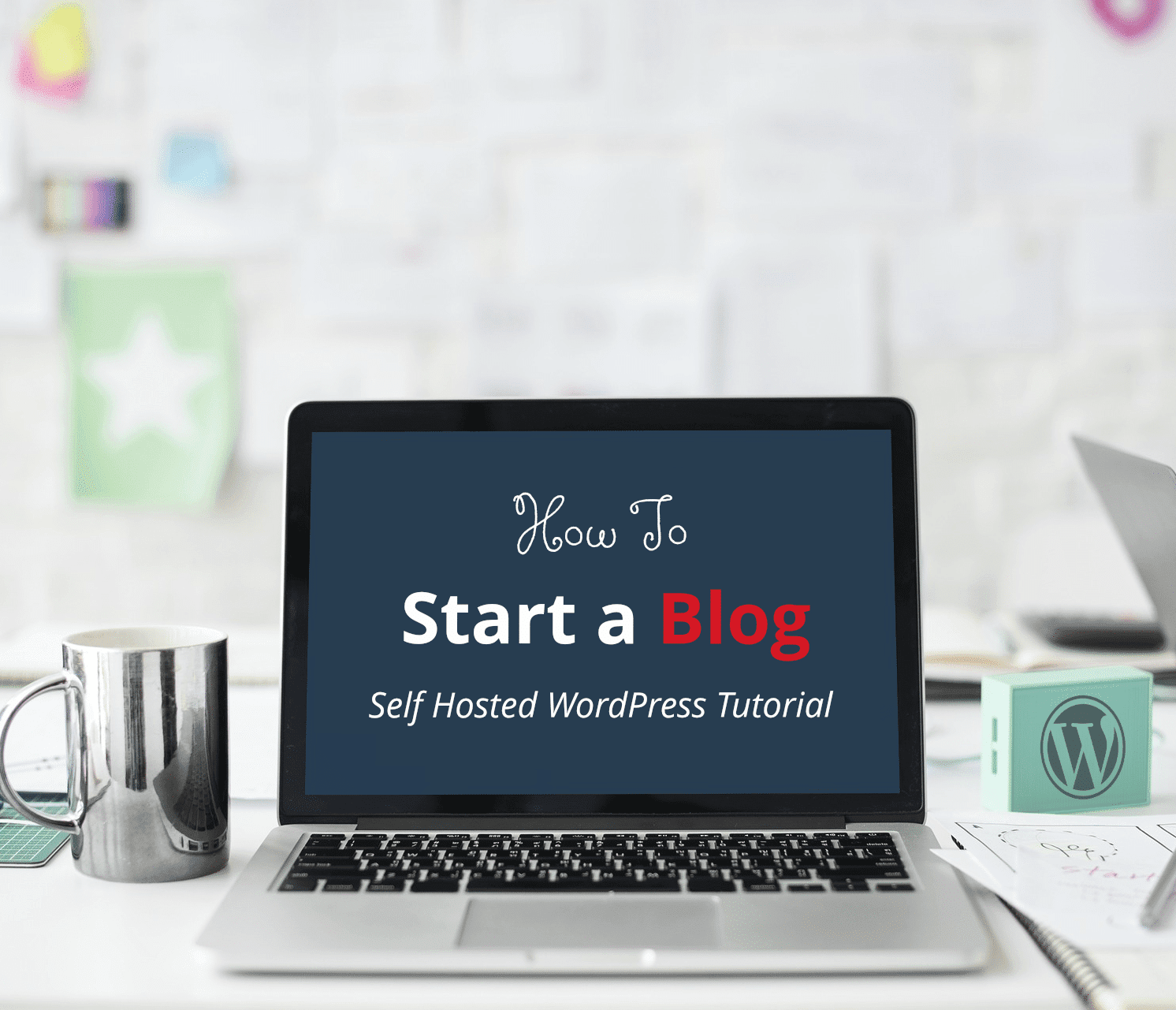This is a guest post by Sophia Anderson. She is a blogger and professional content writer.
If you have been writing blog articles for any amount of time, it would be stating the obvious to say that churning high quality and optimized content with the frequency you need can be exhausting.
It doesn’t have to be, though.
Many established bloggers have gotten around this by establishing a system for creating blog posts. A step-by-step process and a list of things you need for sophisticated optimization can come in very handy in organizing the work. The ultimate guide to WordPress SEO and writing highly optimized blog posts below will make the process a lot easier on you. The great thing is it’s a lot about just understanding your reader:
1. Keep the Reader in Mind
The most important thing for high-quality blog content is to keep it relevant, and for that, you have to create it with the reader in mind.
Of course, in order to do that, you need to know your target audience. This will help you answer important questions, such as what their expectations are, and how you can enhance their experience on your site. This knowledge is also essential when you carry out optimization techniques, such as keyword research, as well as earning brownie points from Google, which indexes user-relevant pages favorably.
One time-and-tested copywriting strategy to ensure that your content is user-focused is to use the AIDA, which has been used way before Google was even a kernel of an idea in the minds of Sergey Brin and Larry Page. It leads your readers down a positive experience funnel that results in conversion.
AIDA stands for Attention, Interest, Desire, and Action, all the goodies you want in your blog. Here is how to use AIDA to optimize your content.
2. Pick Up on the Current Interest
The online community is very fluid, and what might interest them today may be old news tomorrow. This can hurt your search rankings despite your best WordPress SEO efforts.
To maximize your resources in creating optimized content, you need to keep stride with the trends. You can do this by using monitoring tools, especially on social networks where trends rule. Knowing what your audience is talking about at any time can help your blog content shoot up the ranks.
Some topics are less volatile than others are. If your blog is about something that is more or less static, you can concentrate on going deeper rather than wider. This is especially important if you are servicing a niche market in a trade or profession, or focus on B2B markets. To monitor the interest, check what questions are being asked on specialized forums, and take cues from there.
3. Add Meta Tags
In case you have never heard of it, meta tags are the words in the code specifically designed for search engines. They are present in the title, description, and keyword fields, which the readers can see when they show up in the search results.
Once upon a time, meta tags were major components in search rankings, but not so much now since it had been targeted for black hat WordPress blog SEO. However, while search algorithms are much more skeptical about meta tags, they are still important in establishing the relevance of the page.
At the very least, your meta tags will tell the reader if your blog post is interesting or informative enough for them to click on it, and click-through rates (CTR) are important for page ranking.
If you are not entirely sure how to do it, here is a great post on adding meta tags to your blog posts. You can also consult the help section of your blog platform if you use anything other than Blogger. The important thing is to add them now, even for previously published posts.
4. Use Keywords Wisely
If you think that using popular keywords at every opportunity, even when it doesn’t read well, is a good idea, think again.
Keyword stuffing used to work like a dream, but Google caught on and penalized not only pages but entire sites for this practice during the infamous Penguin update. This practice will not help your ranking in any way.
Instead of peppering your content with keywords any which way, go for using them strategically, such as in the title and the description e.g. meta tags, in the URL, and in the first and last paragraphs. You might also want to pay more attention to long-tail keywords and make every effort to use it in sequence as naturally as possible in the content as well as image alt text.
5. Construct Headings Well
Headings are used in content primarily to make it easier for readers to pick up on the salient points in your article. Headings provide an organized and logical structure to your content.
Appropriately enough, search engines also pay careful attention to headings for this reason. It checks the structure and content to decide if the page is relevant to a particular search. Constructing headings with the focus keyword will help both the reader and search engine decide if your page is worth checking out.
6. Optimize Your URL
Search engines look at a lot of things when indexing a page, and one of them is the web address or the URL (Uniform Resource Locator).
Most site platforms automatically generate a URL based on your title, which can be a good thing if your title contains your main keyword or phrase. However, that is not always the case. To optimize URLs structure to improve search ranking, you need to know some specific rules.
In most instances, for example, shorter URLs with one to two keywords tend to get better ranking than long ones. If your title extends your URL length more than 100 characters, you may want to manually change the URL to keep the character count in check.
7. Use Links Strategically
Great content is good, but you really want to get some link juice flowing.
Some people believe that link building is just as bad as keyword stuffing, but that is not true at all. Organic links are WordPress seo-friendly and can be very helpful in optimizing your blog content simply because they provide value of and in itself.
Links in your content serve several purposes. It provides additional information for your reader they can access at their convenience within your site or to other sites. It also increases your site’s authority, especially if you link to credible sources, and this can help improve your page ranking.
You can create link juice directly, through hashtags, guest posts, document sharing, and so on. You can also do it indirectly, by creating shareable and linkable content, such as videos, infographics, and awesome articles.
Conclusion: Get Started on Your WordPress SEO Today
Writing WordPress SEO-friendly blog posts can be a bit of a pain to get it just right. This guide to writing highly optimized blog posts can help you get there as quickly and painlessly as possible.
What would you add to the list? Let us know, we’d love to hear your insights.

Sophia Anderson is a blogger and a professional content writer at EssaysOnTime who is keen on exploring new trends in content marketing and trying them out in practice. She believes in the driving
the force of positive attitude and personal development.






Great post.Really nice article . Your article for SEO is very helpful
for me.Thank you for sharing this!
Content is one of the factors to determine the ranking position and increase the traffic.
This is a great blog. I am pretty much impressed with your good work. You put really very
helpful information.
thanks for sharing useful post thanks for sharing please keep on share like this.
point that you have mentioned in your post is awesome,i always use yoast seo for my wordpress blog. yoast seo help me lot in search engine ranking.
Hey Greg, thanks for sharing this informative blog post with us regarding WordPress SEO, I really like your all the blog post.
After reading this blog i come to know the cause behind why my website is not get ranked on my keywords.
thank you for the tips.
Thanks for the very important tips to write a high quality
Informative post. Even i work for blogs in wordpress. These simple SEO tips really helps in ranking of blogs.
Thanks for very important tips to writ high quality optimized SEO Blog in WordPress.
No prob! 🙂
I can resonate with two points:
#1. Linking internally and externally help improve a website’s rankings.
#2. As Jayson Demers suggested the formula of AIDA in blog writing.
Length is not always a solid factor when describing your opinion but since we all relate to SEO marketing, higher word count means a deep analysis of the content topic + a high probability of getting inbound links and thus good organic rankings.
Looking forward to see more at Dear Blogger Community.
Good Information Thank you for Sharing such a good article
Thank you for sharing.. keep it up..
Thank you for the grateful information by telling about wordpress seo
I will check into your lists.
Thank you for sharing
This article was super helpful and on point, thank you so much. I’m reading all the other articles as well, you’re very insightful and encouraging. Thanks!!!
It’s really a nice informative post for every blogger and i think every blog user must collect knowledage from your this article. I think it’s the nice on page optimization system.
Very useful tips for an online content creator.
I started to use your advices since August 2017, and now at the middle of September (same year) my long and unique articles (1000+ words) have reached good rankings in search engines (some of them even without getting links).
Dear Dan,
Super to hear your progress. Sounds like you are building better blogs over there, keep it up! Thank you for sharing.
If you’d be interested is guest posting about a blogging story or accomplishment, feel free to send a pitch to greg@dearblogger.org.
Great work,
Greg
Good information, I will try it and hopefully I succeed. I love to learn wordpress and about seo here.
Helpful information, thanks for writing and share this information
A very informative post! I especially like your points 3. Meta tags 4.Use keywords wisely 6. Optimize URL. These are things that often don’t get enough attention by most bloggers. Enjoyed the read! 😀
yes,this is right